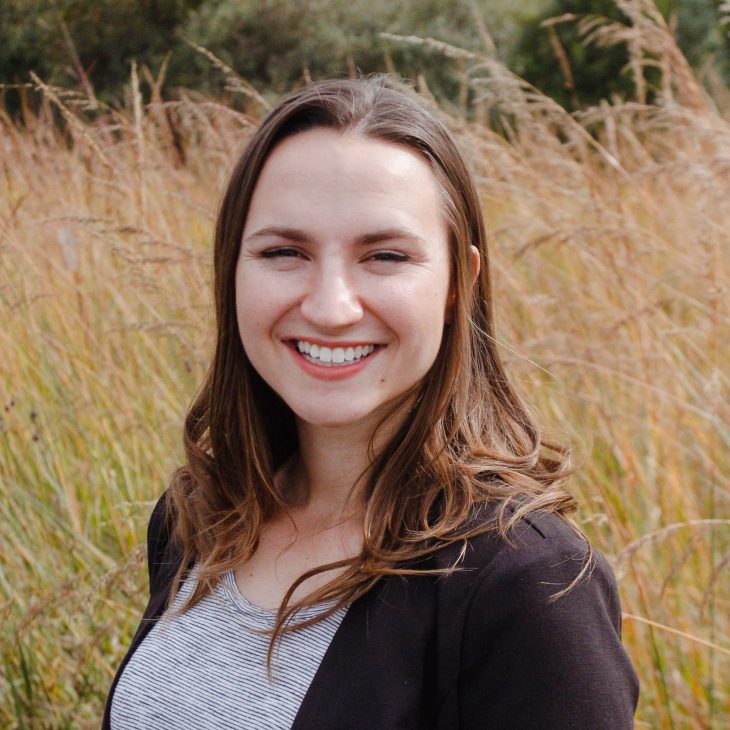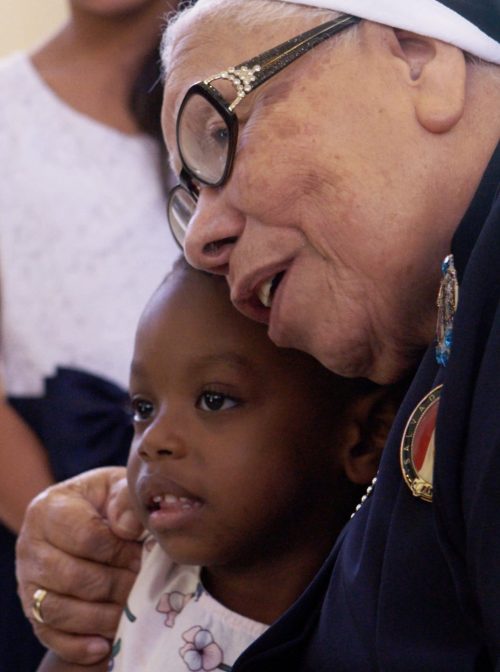When thinking of organized religion, it’s often easier for me to dwell on systemic injustices than the positive lights in the world. Yet, they are there if I open my eyes to them.
One such spark is Sister María Rosa Leggol of Honduras. The documentary “With This Light,” released on August 11 and now streaming on several digital platforms, tells the story of the Franciscan nun often called “The Mother Teresa of Honduras.”
Although Sister María Rosa Leggol never finished grade school, through her faith journey, she was an entrepreneur, astute businesswoman, honorary doctorate-holder, and activist who changed the lives of over 87,000 vulnerable children with her social programs.
I learned about Sister María’s childhood throughout the film. After experiencing the death of her single parent, she found solace in the structure and meaning of religious life when she met two visiting nuns at the age of six. She knew then that it was her calling to dedicate her life to God and the people of Honduras.
Reflecting on her life at 92, Sister María says, “My path is to open paths so others can walk.” Over her years of service, she helped seed dozens of organizations and programs — including medical clinics, schools, and orphanages — that still serve Hondurans with holistic, family-centered care.
Throughout the film, Sister María recounts how she defied the Mother Superior to secure housing for children in need, set up a Board of Directors without ever having held a formal job, and scaled programs that impacted thousands without ever losing sight of the individual children she was serving.
“To follow God, one has to be a bit crazy,” she quipped. Her unique sense of humor often appears in the film as she makes light of seemingly impossible feats and prays blessings over her favorite soccer team while watching a match. Seeing someone in head-to-toe religious garb effortlessly move between the sacred and the silly was refreshing.
Although her child-like spirit kept me steadily laughing in the film, she also reflected on much harder periods of her life, including when her partner in ministry — a Canadian priest — was murdered by the Contras in the 1980s. Although her crucifix is ever-present, she adds that one has to be a bit crazy to follow God “because it’s not easy.”
I believe her life was far from easy because Sister María lived her life and faith to its fullest. It’s tempting for many religious leaders to get caught up in righteousness and the idea of good works without seeing human needs around us. This is reflected in the Christian religion’s story of the Good Samaritan when a priest and faith leader don’t stop to help a dying man, but the religious “other” does. In my context, I see this when pastors preach on Sunday about welcome and justice without recognizing the divisions and injustices in our community.
What can we do with this light?
Faith leaders like Sister María are inspirational because of their ability to hold tension between the ideological and the practical. The hallowed and the mundane. Historic teachings and the current human reality. It is a practice of religion that seeks human flourishing in abundance, even at a cost to oneself.
In speaking on the film, Executive Producer Jessica Sarowitz shared that they chose the title because Sister María brought light wherever she went. She used the light inside her to guide and comfort thousands, whether it was by lighting up a room with her joy, shining a light on injustice, or illuminating a new path for a child in need.
During the documentary’s filming, Sister María passed away at the age of 93 due to complications from COVID-19. In many ways, the mourners who gathered to grieve and remember her showed us her impact on many lives. As Hondurans reflected on ways Sister María uplifted their individual lives and the entire country, it was clear that her faith in God and care for the vulnerable had sparked a movement that would continue to burn. The people gathered asked what every faith leader should be wondering as we seek the common good in our lives and work.
What can we do with this light?

Carissa Zaffiro
Carissa Zaffiro is passionate about navigating the intersection of religion and culture, helping to build bridges of inclusivity and understanding in diverse communities. She works at a Chicagoland non-profit where she mobilizes the Christian community to welcome and befriend refugees.




